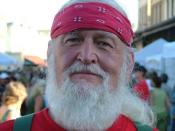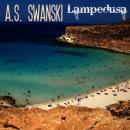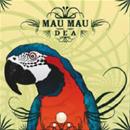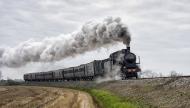May the first was bright and clear,
Nineteen hundred was the year;
A great explosion rocked our town,
While the men were underground.
Don’t you see that funeral train
Don’t you see that funeral train,
Rolling down that lonesome valley
It’s the long-est one I’ve seen.
When we gathered at the slide
We thought that just a few had died,
Fought our way in past the mine head,
Carried out two hundred dead.
Don’t you see that funeral train
Don’t you see that funeral train,
Rolling down that lonesome valley
It’s the long-est one I’ve seen.
When we brought them to the light,
It was a black and awful sight,
In one family there was nine
Lost inside that burning mine.
Don’t you see that funeral train
Don’t you see that funeral train,
Rolling down that lonesome valley
It’s the long-est one I’ve seen.
A miner’s life is hard I know,
His world is dark and far below,
While he starves and goes in rags,
He’s cheaper than the coal he digs.
Don’t you see that funeral train
Don’t you see that funeral train,
Rolling down that lonesome valley
It’s the long-est one I’ve seen.
A miner’s life is hard I know,
His world is dark and far below,
While he starves and goes in rags,
He’s cheaper than the coal he digs.
Nineteen hundred was the year;
A great explosion rocked our town,
While the men were underground.
Don’t you see that funeral train
Don’t you see that funeral train,
Rolling down that lonesome valley
It’s the long-est one I’ve seen.
When we gathered at the slide
We thought that just a few had died,
Fought our way in past the mine head,
Carried out two hundred dead.
Don’t you see that funeral train
Don’t you see that funeral train,
Rolling down that lonesome valley
It’s the long-est one I’ve seen.
When we brought them to the light,
It was a black and awful sight,
In one family there was nine
Lost inside that burning mine.
Don’t you see that funeral train
Don’t you see that funeral train,
Rolling down that lonesome valley
It’s the long-est one I’ve seen.
A miner’s life is hard I know,
His world is dark and far below,
While he starves and goes in rags,
He’s cheaper than the coal he digs.
Don’t you see that funeral train
Don’t you see that funeral train,
Rolling down that lonesome valley
It’s the long-est one I’ve seen.
A miner’s life is hard I know,
His world is dark and far below,
While he starves and goes in rags,
He’s cheaper than the coal he digs.
inviata da Bernart Bartleby - 26/5/2014 - 16:02
×
![]()








Parole e musica di Utah Phillips (1935-2008).
Trovo la canzone nel quadruplo disco compilativo intitolato “Starlight On The Rails: A Songbook”.
Anche nel disco collettivo intitolato “Long Gone”, tributo a Bruce “Utah” Phillips realizzato nel 2010.
Il 1 maggio 1900 a Scofield, Utah, si verificò un’esplosione in un pozzo nella Winter Quarters Mine. Di per sé lo scoppio uccise “solo” 4 minatori ma produsse una spaventosa concentrazione di monossido di carbonio che si diffuse in tutte le gallerie attraverso il sistema di aerazione danneggiato. Il bilancio fu terribile: quasi 250 minatori persero la vita.
E il pensiero va agli oltre 300 (e forse molti di più) minatori turchi uccisi in una miniera di carbone a Soma, mentre Erdogan minimizzava (“questo tipi di incidenti sono cose ordinarie”) e i suoi scagnozzi insultavano e picchiavano i parenti delle vittime e reprimevano le manifestazioni di protesta accesesi in tutto il paese.
“L’industria mineraria turca vanta un record di sicurezza assolutamente terribile. L'industria del carbone conta più del 10% degli incidenti industriali, con 13.000 minatori coinvolti in incidenti nello scorso anno. A partire dal 2000, 1.308 persone sono morte in incidenti in miniere di carbone prima di questo ultimo evento. Questo fa della Turchia il paese con il più alto numero di decessi minerari al mondo dopo la Cina. Ma i numeri assoluti sono ingannevoli e, se si esaminano i dettagli, la Turchia ha un tasso di mortalità di 7,22 lavoratori per milione di tonnellate di carbone rispetto all’1,27 in Cina e allo 0,02 degli Stati Uniti. Ciò significa in realtà che i lavoratori hanno quasi sei volte più probabilità di morire in una miniera di carbone turca piuttosto che in una cinese e 361 volte più probabilità rispetto ai minatori statunitensi.” (da Il Pane e le Rose)